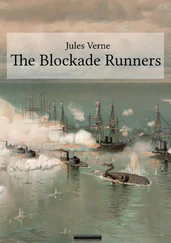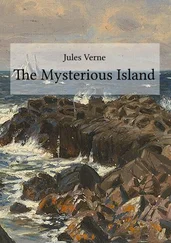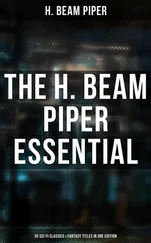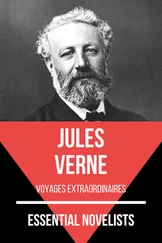But, first of all, did this personage really exist? That was the great question. The name of “Michel Ardan” was not altogether unknown in America. It belonged to a European much talked about for his audacious enterprises. Then the telegram sent all across the depths of the Atlantic, the designation of the ship upon which the Frenchman had declared he had taken his passage, the date assigned for his arrival—all these circumstances gave to the proposition a certain air of probability. They were obliged to disburden their minds about it. Soon these isolated individuals formed into groups, the groups became condensed under the action of curiosity like atoms by virtue of molecular attraction, and the result was a compact crowd going towards President Barbicane’s dwelling.
The president, since the arrival of the message, had not said what he thought about it; he had let J.T. Maston express his opinions without manifesting either approbation or blame. He kept quiet, proposing to await events, but he had not taken public impatience into consideration, and was not very pleased at the sight of the population of Tampa Town assembled under his windows. Murmurs, cries, and vociferations soon forced him to appear. It will be seen that he had all the disagreeables as well as the duties of a public man.
He therefore appeared; silence was made, and a citizen asked him the following question:—“Is the person designated in the telegram as Michel Ardan on his way to America or not?”
“Gentlemen,” answered Barbicane, “I know no more than you.”
“We must get to know,” exclaimed some impatient voices.
“Time will inform us,” answered the president coldly.
“Time has no right to keep a whole country in suspense,” answered the orator. “Have you altered your plans for the projectile as the telegram demanded?”
“Not yet, gentlemen; but you are right, we must have recourse to the telegraph that has caused all this emotion.”
“To the telegraph-office!” cried the crowd.
Barbicane descended into the street, and, heading the immense assemblage, he went towards the telegraph-office.
A few minutes afterwards a telegram was on its way to the underwriters at Liverpool, asking for an answer to the following questions:—
“What sort of vessel is the Atlanta ? When did she leave Europe? Had she a Frenchman named Michel Ardan on board?”
Two hours afterwards Barbicane received such precise information that doubt was no longer possible.
“The steamer Atlanta , from Liverpool, set sail on October 2nd for Tampa Town, having on board a Frenchman inscribed in the passengers’ book as Michel Ardan.”
At this confirmation of the first telegram the eyes of the president were lighted up with a sudden flame; he clenched his hands, and was heard to mutter—
“It is true, then! It is possible, then! the Frenchman does exist! and in a fortnight he will be here! But he is a madman! I never can consent.”
And yet the very same evening he wrote to the firm of Breadwill and Co. begging them to suspend the casting of the projectile until fresh orders.
Now how can the emotion be described which took possession of the whole of America? The effect of the Barbicane proposition was surpassed tenfold; what the newspapers of the Union said, the way they accepted the news, and how they chanted the arrival of this hero from the old continent; how to depict the feverish agitation in which every one lived, counting the hours, minutes, and seconds; how to give even a feeble idea of the effect of one idea upon so many heads; how to show every occupation being given up for a single preoccupation, work stopped, commerce suspended, vessels, ready to start, waiting in the ports so as not to miss the arrival of the Atlanta , every species of conveyance arriving full and returning empty, the bay of Espiritu-Santo incessantly ploughed by steamers, packet-boats, pleasure-yachts, and fly-boats of all dimensions; how to denominate in numbers the thousands of curious people who in a fortnight increased the population of Tampa Town fourfold, and were obliged to encamp under tents like an army in campaign—all this is a task above human force, and could not be undertaken without rashness.
At 9 a.m. on the 20th of October the semaphores of the Bahama Channel signalled thick smoke on the horizon. Two hours later a large steamer exchanged signals with them. The name Atlanta was immediately sent to Tampa Town. At 4 p.m. the English vessel entered the bay of Espiritu-Santo. At 5 p.m. she passed the entrance to Hillisboro Harbour, and at 6 p.m. weighed anchor in the port of Tampa Town.
The anchor had not reached its sandy bed before 500 vessels surrounded the Atlanta and the steamer was taken by assault. Barbicane was the first on deck, and in a voice the emotion of which he tried in vain to suppress—
“Michel Ardan!” he exclaimed.
“Present!” answered an individual mounted on the poop.
Barbicane, with his arms crossed, questioning eyes, and silent mouth, looked fixedly at the passenger of the Atlanta .
He was a man forty-two years of age, tall, but already rather stooping, like caryatides which support balconies on their shoulders. His large head shook every now and then a shock of red hair like a lion’s mane; a short face, wide forehead, a moustache bristling like a cat’s whiskers, and little bunches of yellow hair on the middle of his cheeks, round and rather wild-looking, short-sighted eyes completed this eminently feline physiognomy. But the nose was boldly cut, the mouth particularly humane, the forehead high, intelligent, and ploughed like a field that was never allowed to remain fallow. Lastly, a muscular body well poised on long limbs, muscular arms, powerful and well-set levers, and a decided gait made a solidly built fellow of this European, “rather wrought than cast,” to borrow one of his expressions from metallurgic art.
The disciples of Lavater or Gratiolet would have easily deciphered in the cranium and physiognomy of this personage indisputable signs of combativity—that is to say, of courage in danger and tendency to overcome obstacles, those of benevolence, and a belief in the marvellous, an instinct that makes many natures dwell much on superhuman things; but, on the other hand, the bumps of acquisivity, the need of possessing and acquiring, were absolutely wanting.
To put the finishing touches to the physical type of the passenger of the Atlanta , his garments wide, loose, and flowing, open cravat, wide collar, and cuffs always unbuttoned, through which came nervous hands. People felt that even in the midst of winter and dangers that man was never cold.
On the deck of the steamer, amongst the crowd, he bustled about, never still for a moment, “dragging his anchors,” in nautical speech, gesticulating, making friends with everybody, and biting his nails nervously. He was one of those original beings whom the Creator invents in a moment of fantasy, and of whom He immediately breaks the cast.
In fact, the character of Michel Ardan offered a large field for physiological analysis. This astonishing man lived in a perpetual disposition to hyperbole, and had not yet passed the age of superlatives; objects depicted themselves on the retina of his eye with exaggerated dimensions; from thence an association of gigantic ideas; he saw everything on a large scale except difficulties and men.
He was besides of a luxuriant nature, an artist by instinct, and witty fellow; he loved arguments ad hominem , and defended the weak side tooth and nail.
Amongst other peculiarities he gave himself out as “sublimely ignorant,” like Shakspeare, and professed supreme contempt for all savants , “people,” said he, “who only score our points.” He was, in short, a Bohemian of the country of brains, adventurous but not an adventurer, a harebrained fellow, a Phaeton running away with the horses of the sun, a kind of Icarus with relays of wings. He had a wonderful facility for getting into scrapes, and an equally wonderful facility for getting out of them again, falling on his feet like a cat.
Читать дальше












